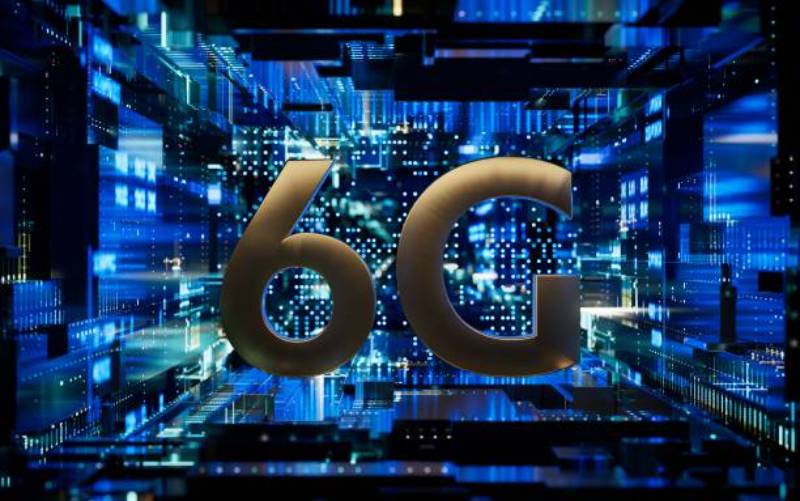
Machine Learning in Healthcare: Transforming Diagnosis and Treatment
9 min read
13 Oct 2025
Introduction
Machine learning (ML) is revolutionizing the healthcare industry by providing more accurate diagnosis, personalized treatments, and predictive analytics that enhance patient care. From radiology to genomics, ML is reshaping how doctors, hospitals, and researchers approach medical challenges. By leveraging big data and powerful algorithms, ML not only improves efficiency but also helps reduce human error and improves patient safety.
How Machine Learning Aids Diagnosis
Machine learning algorithms analyze complex medical data far quicker and often more accurately than humans. They are trained on millions of medical images, pathology slides, and patient records to detect anomalies that may not be visible to the human eye.
Applications in Diagnostics
- Early cancer detection using imaging data and predictive scans
- Identifying cardiovascular diseases with advanced predictive models
- AI-driven pathology for quicker lab test analysis
- Enhanced diagnostic accuracy in dermatology and ophthalmology
Personalized Treatment Plans
By analyzing patient history, medical records, and genetic data, ML models help in creating highly personalized treatment strategies. These reduce trial-and-error in prescriptions, improve outcomes, and provide adaptive therapies that change according to patient progress.
Key Benefits
- Tailored drug recommendations
- Reduced adverse reactions
- Efficient recovery monitoring
- Optimized dosage levels for chronic patients
Machine Learning in Drug Discovery
Traditional drug development is time-consuming and expensive. ML accelerates this process by predicting how compounds will interact with the body, drastically reducing time and cost. It can analyze millions of compounds in days, compared to years with traditional lab testing.
Predictive Healthcare and Preventive Medicine
ML models are used to predict disease outbreaks, readmission risks, and patient deterioration. This predictive approach shifts healthcare from reactive to preventive, allowing doctors to intervene earlier and save more lives.

Preventive Applications
- Early warning systems in ICUs
- Predicting diabetes or heart disease risks
- Monitoring wearable devices for real-time alerts
- Remote patient monitoring for elderly care
Challenges and Ethical Considerations
While ML in healthcare is powerful, it raises concerns around data privacy, bias in algorithms, and transparency of decision-making. Ethical deployment of these technologies is crucial for patient trust.
Major Concerns
- Protecting sensitive patient data from breaches
- Avoiding algorithmic bias in diagnosis and treatment
- Regulatory approvals and clinical validation
- Building trust among patients and healthcare professionals
Future Outlook
The integration of ML in healthcare is only expected to grow, with advancements in precision medicine, robotic surgeries, and AI-assisted mental health tools paving the way for a healthier future. ML will also become central in virtual health assistants, remote diagnosis, and smart hospital systems.
FAQs
How does machine learning improve diagnosis?
Machine learning improves diagnosis by analyzing medical images, lab results, genetic data, and patient histories with speed and precision. It helps detect diseases such as cancer, diabetes, and heart problems at earlier stages, sometimes even before visible symptoms. By spotting subtle patterns, ML supports doctors in making faster, more accurate diagnoses and personalized treatment recommendations.
Can machine learning replace doctors?
No, machine learning cannot replace doctors. While it provides valuable data-driven insights and assists with decision-making, human expertise, empathy, and clinical judgment remain vital in patient care. ML works as a supportive tool, helping doctors interpret complex data, reduce errors, and improve treatment outcomes, but ultimate responsibility for care will always rest with medical professionals.
What role does ML play in drug discovery?
Machine learning accelerates drug discovery by predicting how new compounds will interact with targets in the body, analyzing side effects, and narrowing down promising candidates. This significantly reduces the time and costs associated with laboratory testing. ML-driven simulations and modeling help pharmaceutical researchers bring effective treatments to patients faster, while also minimizing risks and inefficiencies.
Are there risks in using ML in healthcare?
Yes, there are risks. Machine learning systems rely heavily on data, so issues like bias, poor-quality data, and privacy breaches can affect accuracy. Clinical validation is critical before implementation. Over-reliance on ML without human oversight can be dangerous. To minimize risks, ML tools must be transparent, regularly monitored, and integrated responsibly alongside human medical expertise.
How is ML used in preventive healthcare?
Machine learning is highly effective in preventive healthcare by predicting disease outbreaks, identifying at-risk patients, and monitoring real-time data from wearable devices. It helps physicians detect health deterioration early and take proactive steps. By analyzing lifestyle, genetic, and clinical data, ML enables preventive strategies, reduces hospital readmissions, and improves long-term health outcomes for individuals and communities.
Can ML help in mental health treatment?
Yes, machine learning is transforming mental health care. It can analyze speech patterns, facial expressions, and behavior to detect early signs of depression, anxiety, or other conditions. ML also supports personalized therapy recommendations and continuous monitoring. AI-powered chatbots provide preliminary assistance, helping patients manage stress and seek timely care before connecting with a licensed mental health professional.
What is the future of ML in healthcare?
The future of machine learning in healthcare includes precision medicine, advanced robotic surgeries, AI-driven diagnostics, and fully integrated smart hospitals. ML will enable real-time health monitoring, customized treatment plans, and predictive analytics to prevent illness. As algorithms become more accurate and accessible, healthcare systems worldwide will deliver better patient outcomes, improve efficiency, and reduce overall costs.

The AR Breakthrough That Will Make Blockchain Transactions Simpler Than Ever!
6 min read | 11 Oct 2025
How AI Is Making Blockchain Smarter and Safer – The Inside Scoop!
7 min read | 10 Oct 2025
The Big Tech Twist: How VR Is Set to Disrupt Blockchain Like Never Before!
5 min read | 09 Oct 2025
Unlocking the Power of AR: How Augmented Reality Is Set to Revolutionize Blockchain!
5 min read | 08 Oct 2025More Articles

The Future of Quantum Computing in Everyday Life
12 min read | 13 Oct 2025

The Evolution of 6G: What Comes After 5G?
11 min read | 12 Oct 2025

The AR Breakthrough That Will Make Blockchain Transactions Simpler Than Ever!
6 min read | 11 Oct 2025

How AI Is Making Blockchain Smarter and Safer – The Inside Scoop!
7 min read | 10 Oct 2025
More Articles

The Decentralized Marketplace: Disrupting E-commerce with Blockchain
6 min read | 30 Sep 2025

The Data Dividend: Can Blockchain Help Us Own Our Data?
4 min read | 29 Sep 2025

From Fans to Funders: Blockchain Revolutionizes Fan Engagement
5 min read | 28 Sep 2025

The Creator Economy on Steroids: Blockchain Empowers Content Creators
6 min read | 27 Sep 2025
